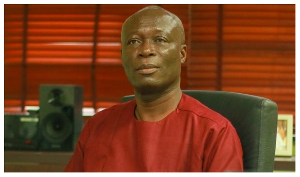Since 1881 when the conquest of the African continent kicked off, European nations maintained a stronghold on African countries for two main reasons:-economic and political.
Nonetheless, the wind of change that started in the early-mid 1950s ushered in a new phase of socio-political development on the continent - development that was of the cause, championed by Ghana. We had Dr Kwame Nkrumah working fastidiously not only to see the true independence of Ghana but also, to realize the total and unconditional liberation of the whole of the continent of Africa, from both endogenous and particularly exogenous forces at the time. Dr Nkrumah took several actions and made various assertions. In his independence speech, on 6th March 1957, he made a clarion call indicating that “Our independence is meaningless unless it is linked with the total liberation of the African continent.” He inspired many African nations towards freedom, and in less than ten years, about thirty other African countries gained their independence from their colonial masters.
Ghana became the beacon of freedom and hope on which many African nations looked up to as a model. The flag, designed to underscore not only the love in the blood of the heroes who had died during colonial brutality, it also represented the diverse riches of natural resources; and there was even an extension of brotherhood, to the Caribbean brothers based on the Marcus Garvey’s shipping Corporation that was in Ghana at that time.
Dr. Nkrumah undertook huge projects such as, establishing many learning institutions and encouraging the setting up of various cooperatives. He constructed good roads and increased the capacities of water bodies; consolidated the Ghanaian territorial claims on the Trans Volta Togoland; set up health facilities and erected a vibrant economy. As one of the first to understand what independence adequately entailed, Dr. Nkrumah insisted that the liberation of any African country can only be truly actualised within the fringes of a united African continent. He educated his African homologues through a long speech during one of the first meetings of the Organisation of African Union (now AU) in Addis Ababa, in 1963, by emphasizing that, “the social and economic development of Africa will come only within the political kingdom, not the other way around”, he added that, the United States of America and the then Soviet Union (USSR) were the result of political decisions of revolutionary people, before attaining the global status of ‘Super Power,’ and possessing enormous material wealth. He reiterated that, it is the same course Africa needs to follow if she hopes to be a great and truly independent empire.
Kwame Nkrumah averred that, leaving Addis Ababa without signing a “unitary act” was suicidal for the continent. He believed that, Africa would never demand anything in the world and have it; that Africans will never be respected enough; that the continent will not have the freedom to develop its economy as she would want it; that Africans will not have a voice to ask for their rightful place under the sun, if they don’t do it from “a position of strength.” He repeated that, “we must unite now or perish.” For some reason however, the African leaders did not heed to Nkrumah’s call and what he warned against. His predictions would gradually be realised on the continent at the expense of all the African people. He was the first victim of his Addis Ababa admonition. His good intentions for Africa were considered far-fetched and his approach was seen by others as dictatorial. He attracted many enemies from Western alliances and his government was ousted in 1966. In fact, leaving Addis Ababa without the “Unitary Act” was a betrayal of Nkrumah by African leaders, because from that time up until he was deposed, Nkrumah was considered as a threat within the circles of the enemies of Africa.
Dr. Nkrumah’s failed persuasions certainly helped the Western alliance to develop better ideas on how to tightly coordinate neo-colonial schemes on the continent. With just six years in power, everyone even now can testify that Nkrumah’s efforts to develop Ghana were impeccable. Some of his works are still freshly visible in nearly every part of Ghana. In spite of his attempts to consolidate power which he exercised in an autocratic manner such as the implementation of the Preventive Detention Act, Nkrumah is remembered as one of the patriots with great leadership qualities and exceptional achievements in Ghana and in Africa. Today, Ghanaians and most Africans celebrate his life more than they do with the life of any other hero in the nation and the continent. It is hard to believe that with such a patriotic kick-off in the tapestry of African leadership, Africa has degenerated to mean politics, as we find it demonstratively nearly in every country of the continent today.
From 1966 when Nkrumah was overthrown until J.J Rawlings’ era which commenced from 1981, the nation of Ghana was plunged into a “deep sea of political impasse” triggered by greed, corruption, irresponsibility, intransigence, tribalism, nepotism etc., piloted by the wave of neo-colonialism. The economic and socio-political sectors were all in shambles for about 15 years, keeping the common man in despair, expecting the coming of a saviour.
In the memory of Dr Kwame Nkrumah.
Long live Ghana, long live Africa.
Dr Donald Agumenu.
Accra-Ghana
23-09-2019
donaldcogan@yahoo.com
Opinions of Monday, 23 September 2019
Columnist: Dr Donald Agumenu



















